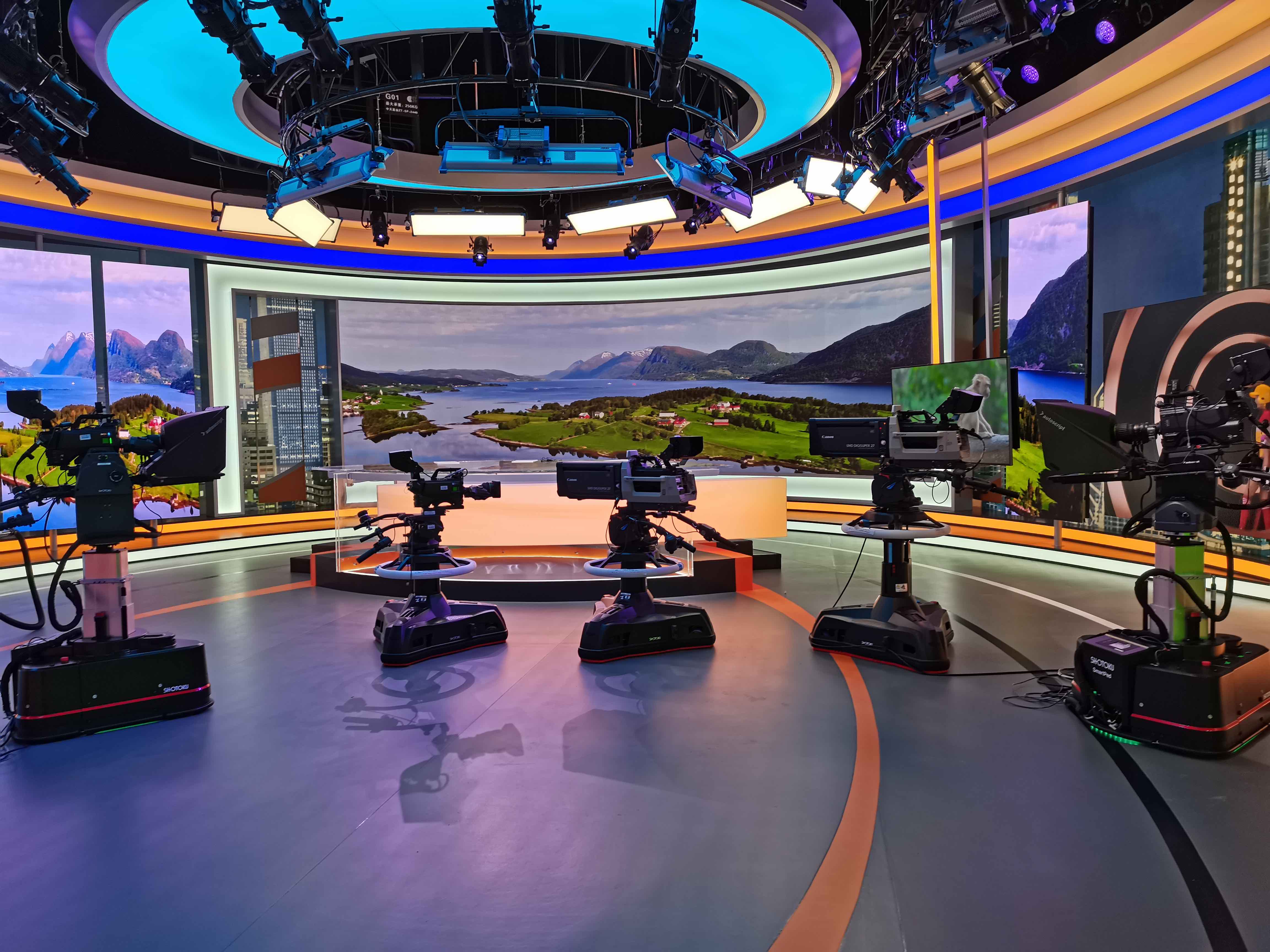
With recent advancements in extended reality (XR), newsrooms around the world are undergoing a revolutionary transformation. From immersive reporting experiences to cutting-edge visualizations, these technologies are reshaping how stories are told in the broadcast news industry.
This technology isn’t coming up in five or 10 years, it’s available now. Before long, it will be the expectation. And, with broadcast viewership at all-time lows, newsroom studios must adapt to maintain their competitive edge and keep viewers tuned in and engaged.
The public’s hunger for immersive technology is evident across sectors, whether it be entertainment, sports, or the corporate workplace. We’ve seen what that means when U2 recently debuted the new Sphere in Las Vegas, a highly immersive concert hall that has been widely referred to as the future of entertainment.
Interactive Storytelling
Similar technology is breaking into smaller-scale spaces like newsrooms and corporate broadcast studios. Through LED volumes and strategic flexible design, traditional media spaces are evolving to offer a whole new breadth of user experience through XR integration. XR technologies enable interactive storytelling, where viewers can explore news stories in a nonlinear fashion. They often involve real-time graphics and overlays that allow users to visualize complex data and provide context that enhances the viewer’s understanding of the news story.
Hunan TV, China’s largest television broadcaster, launched its first ever news channel, Hunan News, which features numerous large LED displays, allowing formatting flexibility when presenting XR content in a layered, on-air look. The broadcast facility, designed by Provost Studio back in 2020, was the country’s first 4k ultra-high definition news studio, complete with 360 degree capabilities. The 5,000-square-foot studio features three main areas for content presentation, including a main anchor area, social media zone and informal discussion area with dramatic entry stairs.
With XR technology, reporters can share breaking news as though they have boots on the ground, which can be particularly useful for covering events in challenging or dangerous environments. The enhanced immersion allows viewers to feel like they are present at the scene of a news event and enables more interactive and creative storytelling.
Beyond allowing reporters access to remote production capabilities at home, XR stages can be optimized with virtual setups for interviewees. They also enable more robust hybrid strategies to accommodate a variety of pre-taped and live segments.
Maximizing Potential
When adopting XR stages into the newsroom, there are many ways to maximise their potential. It’s crucial to update technology to create a physical AND virtual environment, allowing a seamless merging of the two.
News organizations can also opt for a variety of content zones for different types of media and platforms. This will ensure the space accommodates anything from Instagram moments to standing news presentations. An adaptable “tool box” design is also key, as flexible studios that feature multiple configurations, movable scenic elements and backdrops will enable the space to be retrofitted and retooled as content priorities and industry technology change.
In today’s rapidly evolving media landscape, newsrooms globally are experiencing a profound shift driven by XR technology advancements and consumer thirst for immersive content. As these innovations revolutionize the way stories are presented in the broadcast news industry, news organizations seeking to be on the cutting edge of innovation must embrace these changes to ensure viewers stay connected and engaged.
This article originally appeared on TV Tech sister brand Installation.







